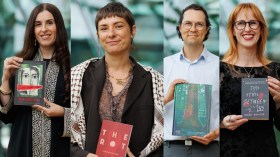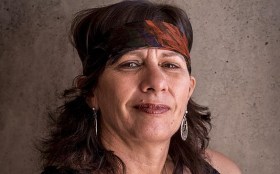More than 6,000 new words have been added to the Cambridge Dictionary in the past year. But when one of the world’s top dictionaries starts taking linguistic cues from a YouTube Shorts series featuring a floating head in a toilet, you might be forgiven for thinking we’ve reached a cultural low ebb.
That said, the word in question that appears in the viral YouTube series – ‘skibidi’ – loosely defined as describing something ‘good’, ‘cool’, ‘bad’ and/or ‘surprising’ – is, compared to previous new slang of similar meaning, somewhat refreshing in style.
New words: quick links
New words: skibidi
Skibidi’s three-syllable rhythmic intonation and phonetic allusions to the (jazz) words ‘scat’ and (swimwear item) ‘bikini’, feel decidedly playful when viewed alongside other recent slang to describe ‘good/ bad’ things – such as ‘slay’ and ‘kill’.
Yet Cambridge’s 6000+ new words also contain a terms few that reveal more sinister undertones of our world today (and potentially our lives tomorrow).
New to Cambridge’s pages are the words ‘broligarchy’ (with the person noun counterpart ‘broligarch’) and ‘delulu’ (delusional) – which, when placed together, paint quite a rather unnerving picture of our times.
Read: Best new books published September 2025 in Australia
Also new are a series of compound nouns describing our modern day work habits and relationships.
New words: mouse-jiggler
A ’mouse-jiggler’ for example, describes any device used by a worker to help them present a convincing facade of work and productivity (rather than being engaged in actual work and productivity).
In the Australian context, this term feels right on point as our government continues its flap about our nation’s persistently declining productivity and the slippery slope it is leading us to in terms of economic peril.
New words: work-spouses
As well as leaning on ‘mouse-jigglers’, we are also apparently increasingly turning to ‘work spouses’ – a term included in Cambridge for the first time to describe the dependable relationships we might form with certain colleagues in the workplace whose trust we value in similar ways to a spousal partner.
Officially defined as ‘a person with whom someone has a close, but not romantic, relationship at work, in which the two people help and trust each other in the same way that a married couple does’, its definition raises an immediate red flag around the ever-dissolving lines between our work and home lives.
It also raises questions around the extent to which we are defining our personal lives by our time spent at work, and how healthy it is to align professional relationships with personal ones.
On the flipside, the inclusion of ‘tradwife’ has gotten a lot of attention this year for its ties to the phenomenon of stay-at-home mothers who have recently made it as social media influencers by posting revealing details of their lives and everyday routines to millions of fans.
New words: the environment
Apart from these nods to recent social and cultural trends, there are also new terms that push the environment into the spotlight.
Words like ‘forever chemicals’ and ‘RAAC’ (an abbreviation of Reinforced Autoclaved Aerated Concrete – a popular yet controversial building material, especially in the U.K.) have made it in for the first time.
One could say the recognition of these potentially dangerous substances shows the world is finally waking up to the need to stop using them, or at least to ameliorating their damaging effects. But one could also argue they are now at top of the list due to their frequency of use in the context of the increasing dangers they pose to our health (which is of course a scarier thought).
All in all, when you pause for thought on this year’s ‘new words’, you realise they say a lot about our collective priorities, and the sometimes troubling thoughts they bring into being (thoughts which were once buried in our subconscious, but are now on the tips of our tongues).
Discover more screen, games & arts news and reviews on ScreenHub and ArtsHub. Sign up for our free ArtsHub and ScreenHub newsletters.






